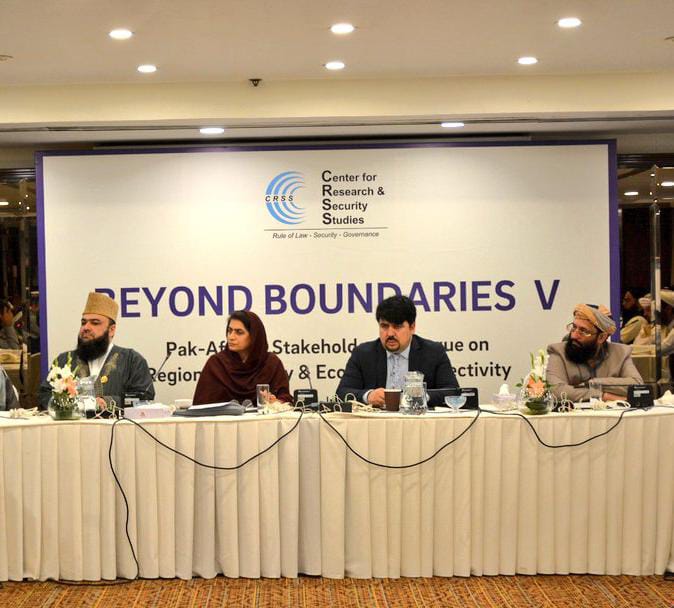Let Afghan Girls Learn – Pak-Afghan Stakeholders’ Undisputed Demand
At the Pak-Afghan Stakeholders Dialogue on Regional Stability and Economic Connectivity, participants – comprising eminent religious and tribal leaders, academicians, and trade and media personnel from Pakistan and Afghanistan – underpinned the need for reopening girls’ schools and amelioration of the educational landscape in Afghanistan.
The participants underscored that the normalization of Afghan girls’ education is an undebatable demand. “We cannot do without education. I ask you all, how is it possible for the Afghan women living under IEA to access sound healthcare in the absence of female doctors, and to meet country’s future healthcare needs with the current ban on education”, said a female delegate.
Noting the current state of Afghan girls’ education and women’s rights, the group extrapolated that the advocacy and outcry on these issues has so far not born the expected outcomes as the Qandahar faction of the Taliban, a key actor in the decision-making, has not been consulted or spoken to as indicatively as required.
“The Afghans do not only want the reopening of girls’ schools, but also an educational system at par with international standards and considerate of cultural and religious context. To forestall future invasions, our youth must advance in science, and other academic disciplines”, said a former Afghan diplomat. Seconding him, a participating Pakistani religious scholar emphasized that the socio-economic and academic progress is the key to preserving civilizations and nations.
The interlocutors reiterated the need to prioritize economic stability and connectivity over political differences. An Afghan commerce expert said, “Pakistan and Afghanistan share ideal proximity – we have similar cultural values, but our problems are also the same, economic crisis being one of them. Now that we finally have peace in our country, we must strive for robust trade and transit and use connected routes to strengthen our economies and establish better trade relations with other regional actors, such as China, Iran, India, Central Asia, etc.”
Participants called for eliminating bureaucratic hurdles and malpractices that hinder bilateral trade, leading to mistrust and animosity between the two countries.
They also expressed concern over the debilitating state of peace and security where some of them argued that the de facto government should not be solely held responsible for rampant terrorism in the region as it is still adapting to the post take over economic and humanitarian crises. “The Taliban do not wish bloodshed for their people or neighbors. However, Doha Agreement must be followed in letter and spirit as doing so would resolve many of our issues concerning peace and security, and political legitimacy. This also applies to the international community – it must respect the sanctity of the Afghan soil and people,” said an Afghan columnist.
The forum recommended that a delegation of revered religious and tribal representatives and policymakers from Pakistan and Afghanistan should meet the respective de facto officials and discuss and suggest an action plan to tackle the recurrent issues. Dr. Qibla Ayaz, Chairman of the Council of Islamic Ideology, stressed that religious and tribal leaders are the actual catalysts of the change that people on both sides have long anticipated. Hence, continuous engagement with them is essential. “Dialogue and unimpeded advocacy are the only way forward,” he concluded.
Comprising eminent religious and tribal leaders, academicians, and trade and media personnel from Pakistan and Afghanistan, the forum was convened by the Center for Research and Security Studies (CRSS) and Organization for Economic Studies and Peace (OESP) as part of Beyond Boundaries – a track 1.5/II initiative to strengthen the Pak-Afghan ties and promote regional peace and stability.




